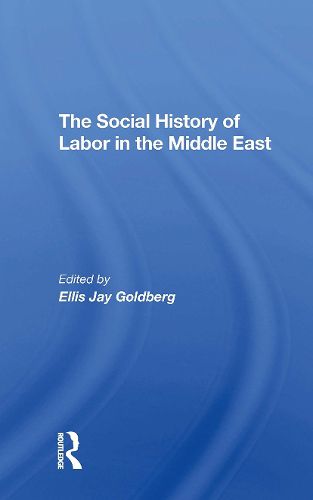Readings Newsletter
Become a Readings Member to make your shopping experience even easier.
Sign in or sign up for free!
You’re not far away from qualifying for FREE standard shipping within Australia
You’ve qualified for FREE standard shipping within Australia
The cart is loading…






Once considered of little import, the social history of labor in the Middle East emerged in the 1980s as a major area of research, as historians sought to uncover the roots of working-class organizing. This volume, the first in an important new series, presents a broad overview of recent literature on the history of workers in the Middle East since 1800 in a bold effort to bring together new directions in research and to reexamine the relevance of established ones. Contributors explore the history of labor by situating state-led industrialization within the context of older artisanal social communities. They examine how industrialization enhanced government control over the economy as a whole and analyze the public's reaction to centralized economic authority. They also explain the longevity of social coalitions supporting state industrial monopolies and examine their breakdown, along with the emergence of Islamist and other oppositional movements. Taken together the essays provide a historically grounded context for viewing the shifting relationship between states and the world economy as well as between particular states and classes and form a rich synthesis of current interdisciplinary literature on work and workers in the region.
$9.00 standard shipping within Australia
FREE standard shipping within Australia for orders over $100.00
Express & International shipping calculated at checkout
Once considered of little import, the social history of labor in the Middle East emerged in the 1980s as a major area of research, as historians sought to uncover the roots of working-class organizing. This volume, the first in an important new series, presents a broad overview of recent literature on the history of workers in the Middle East since 1800 in a bold effort to bring together new directions in research and to reexamine the relevance of established ones. Contributors explore the history of labor by situating state-led industrialization within the context of older artisanal social communities. They examine how industrialization enhanced government control over the economy as a whole and analyze the public's reaction to centralized economic authority. They also explain the longevity of social coalitions supporting state industrial monopolies and examine their breakdown, along with the emergence of Islamist and other oppositional movements. Taken together the essays provide a historically grounded context for viewing the shifting relationship between states and the world economy as well as between particular states and classes and form a rich synthesis of current interdisciplinary literature on work and workers in the region.